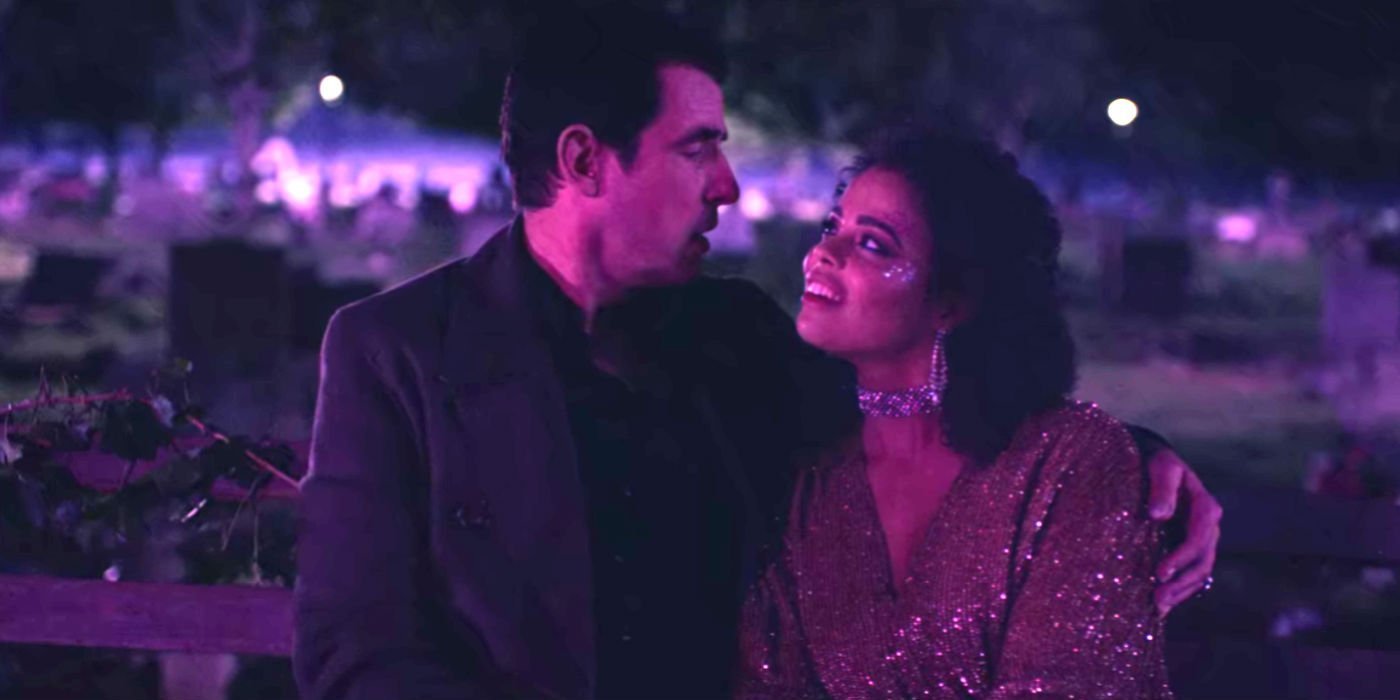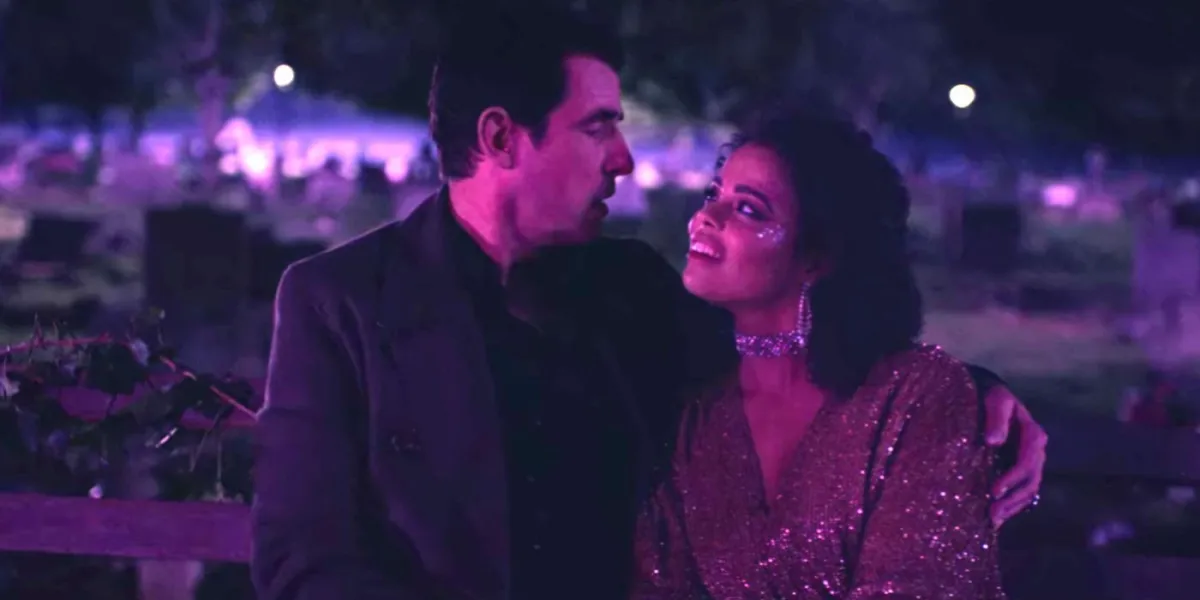We Need to Talk About Lucy Westenra in the New Dracula
Bloof magoof, this was wild.


SPOILER ALERT: We’re spoiling all of Dracula here, guys.
Mark Gatiss and Steven Moffat’s Dracula miniseries was met with mixed reviews when it premiered earlier this month on BBC/Netflix. But one thing most folks can agree on was that the third and final episode in the series was absolutely bonkers. The episode, titled “The Dark Compass,” moves the setting to 2020, and much of it is occupied by Dracula engaging with 21st-century inventions: Dracula on an exercise bike, Dracula logging into Wi-Fi, Dracula on Tinder, etc.
And it is in the present day that, via a stolen cell phone from Jack Seward, Dracula meets and becomes enamored of one Lucy Westenra (Lydia West). Fans of the novel know Lucy as Dracula’s first English victim: the beautiful daughter of a wealthy family. Lucy is not only beautiful but charming and popular, as evidenced by her receiving three marriage proposals in one day. Dracula slowly drains the life from her before transforming her into a vampire, and she is finally killed by her three suitors after attacking the local town children.
Lucy is a character steeped in symbolism. She is innocence lost, she is virginity taken, she is a victim of her own allure. Over the years, her portrayal has shifted, and she is at turns promiscuous, flirtatious, and flighty. Her latest incarnation delivers quite a twist on the character we know so well, but it’s a strange take.
2020 Lucy is a club-going player who flirts with all the men in her orbit. She is also callous and cruel, inviting Jack to the club and making out with Quincey in front of him. She later becomes engaged to Quincey, but cheats on him with Dracula. Dracula and Lucy develop a sort of friends with benefits relationship, with plenty of sexting and romantic rendezvous in the cemetery.
A sex-positive woman who goes toe to toe with Dracula and sees him as just another man in her rotation? It’s a fresh take. Unfortunately, that’s not what happens here. As Dracula walks Lucy through the cemetery, they hear a chorus of shouting voices, and we realize that it is scores of undead victims desperately trying to crawl out of their graves. Is Lucy horrified?
Nope! Lucy is delighted to be surrounded by undead screams because she is a psychopath. When the rotting corpse of a dead child calls her “beautiful” and beckons her to come play with him, she is straight-up delighted. Now there is something interesting to explore here, a woman who can out-evil Dracula himself. But any hope of a Harley Quinn to Drac’s Joker is quickly taken over by Lucy’s real downfall: vanity.
In a hamfisted rebuke of selfie culture, Lucy is enamored above all with her own self-image. In fact, it is her sexy selfie that initially intrigues Dracula. Before he kills her, Dracula warns her to avoid being cremated, but Lucy doesn’t pay attention. She finds herself undead but trapped in her own mind and is tortured as her body is cremated.
As a charred undead corpse, Lucy drags herself back to Dracula’s home. She still sees herself in her original glory, until Jack convinces her to take a selfie and she is shown her monstrous new visage. It is here, confronted with her ugliness (which Dracula says will not be healed, contrary to vampire lore) that she truly comes undone.
Dracula tries to reassure her that she is still beautiful and that she has transcended the superficiality of physical beauty, but for Lucy that is all she is. She says, “everyone always smiles at you when you’re beautiful” and she cannot handle going through the world as a monster. She begs Jack to kill her, and he stakes her (with the cheesiest, Buffy-level dusting VFX).
It’s a frustrating end for what could have been an effective foil. Dracula tells Lucy she is his finest bride, and the first woman in 500 years who willingly gave herself to him. He also (in a bit of gaslighting) says that she knew what was coming, when she clearly did not. It is also unclear if Dracula is still genuinely enthralled with her since she doesn’t fear death, or if this was part of a macabre game to destroy her inside and out.
Is Dracula Jigsaw? Is Lucy a psychopath or under his thrall? Sadly none of these questions receive satisfying answers in the final episode. In the end, Lucy’s demise feels like a woman being punished for vanity and promiscuity, a decidedly unwoke and upsetting ending for a promising female character, and a woman of color no less.
Lucy’s nihilism is supposed to be a key piece of the puzzle that is Dracula’s weakness. Dracula fears death, as he cannot die. But that conceit, and its reveal by Dr. Zoe/Sister Agatha, doesn’t quite work. And because that central thread fails, so does the characterization of Lucy.
What did you think of Lucy Westenra in this new Dracula? Was she just another weird footnote in an already overstuffed finale?
(image: Netflix)
Want more stories like this? Become a subscriber and support the site!
—The Mary Sue has a strict comment policy that forbids, but is not limited to, personal insults toward anyone, hate speech, and trolling.—
Have a tip we should know? [email protected]
